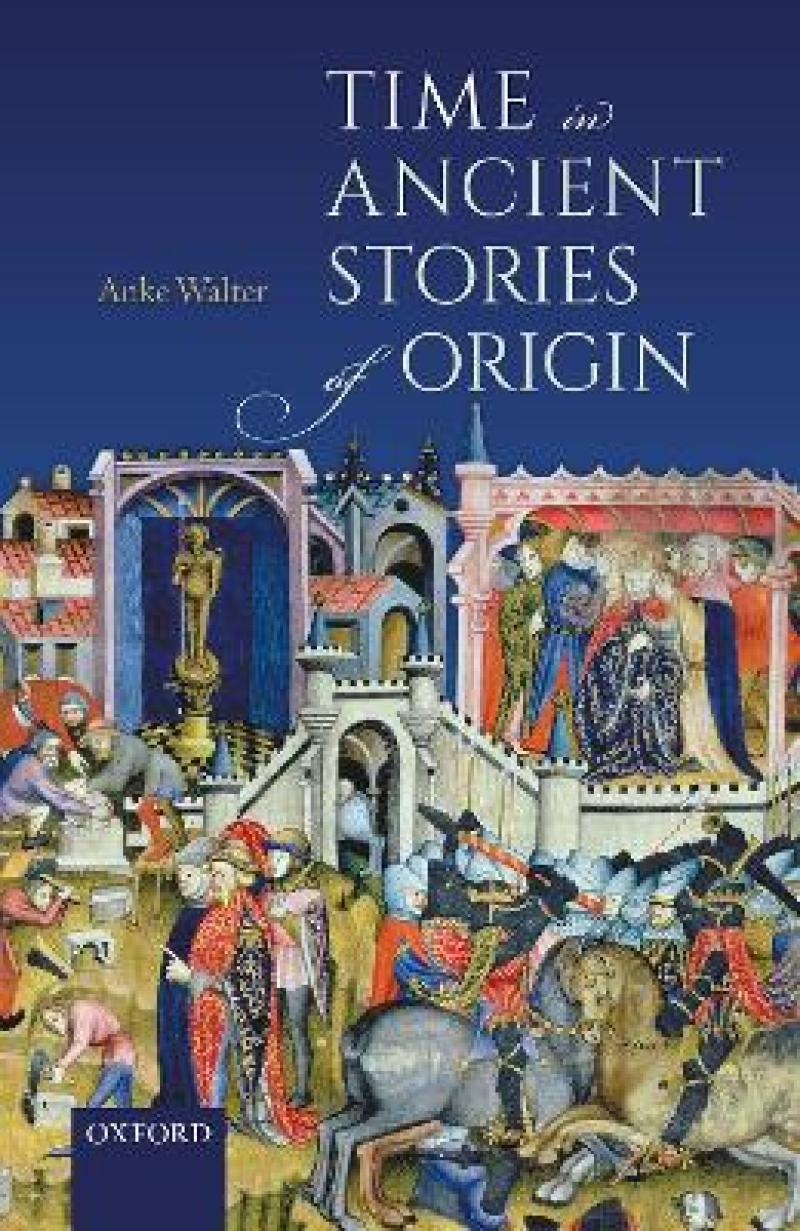Just this brief glimpse into Walter's book shows how rich the subject matter, how important the topic. Despite its scholarly tone, the author's deft selection of material and convincing arguments about their relevance to our understanding of ancient Greece and Rome make this book an important one. Highly recommended.
Cliff Cunningham, University of Southern Queensland, Sun News Tuscon
Greek and Roman stories of origin, or aetia, provide a fascinating window onto ancient conceptions of time. Aetia pervade ancient literature at all its stages, and connect the past with the present by telling us which aspects of the past survive "even now" or "ever since then". Yet, while the standard aetiological formulae remain surprisingly stable over time, the understanding of time that lies behind stories of origin undergoes profound changes. By studying a broad range of texts and by closely examining select stories of origin from archaic Greece, Hellenistic Greece, Augustan Rome, and early Christian literature, Time in Ancient Stories of Origin traces the changing forms of stories of origin and the underlying changing attitudes to time: to the interaction of the time of gods and men, to historical time, to change and continuity, as well as to a time beyond the present one. Walter provides a model of how to analyse the temporal construction of aetia, by combining close attention to detail with a view towards the larger temporal agenda of each work. In the process, new insights are provided both into some of the best-known aetiological works of antiquity (e.g. by Hesiod, Callimachus, Vergil, Ovid) and lesser-known works (e.g. Ephorus, Prudentius, Orosius). This volume shows that aetia do not merely convey factual information about the continuity of the past, but implicate the present in ever new complex messages about time.
Les mer
Greek and Roman stories of origin, aetia, pervade ancient literature. By studying a broad range of texts and closely examining aetia from archaic and Hellenistic Greece, Augustan Rome, and early Christian literature, Time in Ancient Stories of Origin traces the changing forms of stories of origin and the underlying changing attitudes to time.
Les mer
1: Introduction
2: Archaic Aetia: Homer, Hesiod, and the Homeric Hymn to Hermes
3: Hellenistic Literature: Ephorus, Callimachus, Apollonius Rhodius
4: Augustan Aetia: Livy, Vergil, and Ovid
5: Early Christian Literature: Prudentius and Orosius
6: Conclusion
Les mer
Offers the first systematic approach to stories of origin in ancient literature
Examines a number of texts, combining close attention to detail with a view of the larger temporal agenda of each work
Discusses both core ancient aetiological texts and lesser-known works, all tightly focused around the theme of stories of origin
Les mer
Anke Walter is Lecturer in Classics at Newcastle University. She was previously Assistant Professor in Classics at the University of Rostock in Germany and Feodor-Lynen Research Scholar at the University of Virginia, funded by the Alexander von Humboldt Foundation. She completed her PhD in Heidelberg in 2011, with a thesis on storytelling in Flavian epic. Her primary research interests are the construction of time in ancient literature, stories of origin, and
ancient (especially Latin) epic poetry. Walter has co-edited a volume on the narrative structures of stories of origin and has published numerous articles on Flavian epic, stories of origin, and their
reception.
Les mer
Offers the first systematic approach to stories of origin in ancient literature
Examines a number of texts, combining close attention to detail with a view of the larger temporal agenda of each work
Discusses both core ancient aetiological texts and lesser-known works, all tightly focused around the theme of stories of origin
Les mer
Produktdetaljer
ISBN
9780198843832
Publisert
2020
Utgiver
Oxford University Press
Vekt
582 gr
Høyde
234 mm
Bredde
162 mm
Dybde
21 mm
Aldersnivå
P, 06
Språk
Product language
Engelsk
Format
Product format
Innbundet
Antall sider
292
Forfatter
